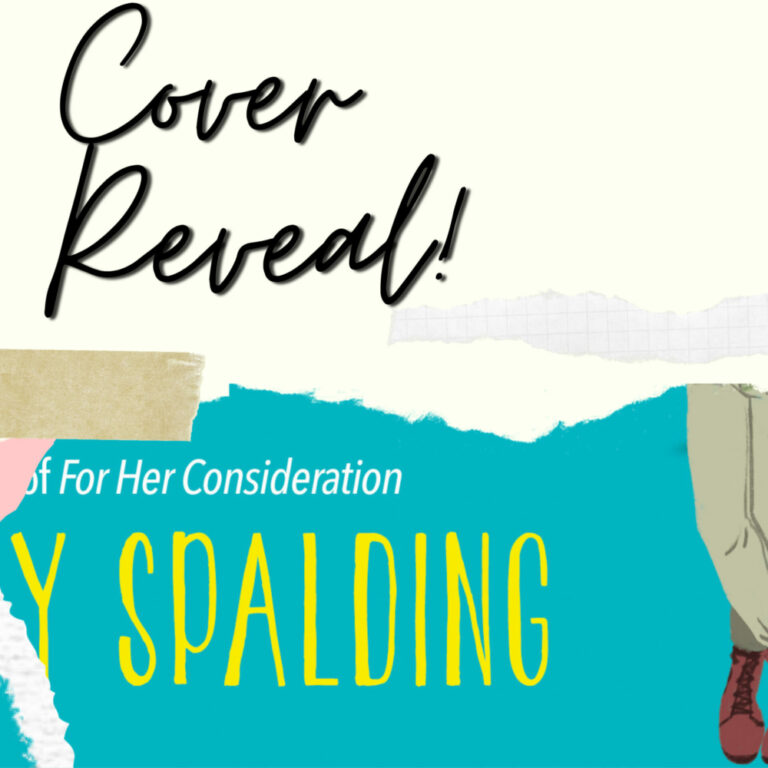I’ve been reading romance for a decade and attempting to write it for almost as long. My secondary school notebooks were split into two halves: the front pages, in which I drafted essays and summarised presentations, and the back pages, in which I scribbled melodramatic love stories. None of my teachers ever questioned me about the latter, so I assume they were awed into silence by my anatomically incorrect sex scenes.
Those early attempts of mine were an exciting rollercoaster of wobbly characterisation, plotless navel-gazing, and shockingly scant description. If you’re intrigued, good. I’ve been keeping the manuscripts under my bed, waiting for terrible storytelling to become an avant garde publishing trend. I will happily sell them to you for the low, low price of £250,000.99
Despite all those unfinished drafts, I didn’t manage to actually write a romance until 2017. Of course, that romance wasn’t particularly good—but I didn’t give a damn, because it was mine, and it had all the necessary parts. It was a start. I was on a roll. I edited the wild tale into submission, and the finished product was a readable book. Gasp!
On that day, I was reborn. I had written my first romance and so had finally become A Romance Writer.
In the year-ish since then, I’ve written many more stories (12, but who’s counting (me)) and I like to think they’re all quite good. In fact, I know they are, because my mother said so. She hasn’t actually read them, but that doesn’t matter.
What I’m saying here is that I have all the necessary credentials to write an article about authorial shenanigans. So buckle up, baby. I’m about to rock your world with five key things I’ve learned about writing romance.
1. The Secret Ingredient is Intensity
People read romance for many reasons. Now that I’ve acknowledged that fact, I feel comfortable following up with this assertion:
When it comes to entertainment, what people really want is to be swept away.
Whatever readers choose to consume, you better believe they want it hard. Or, to rephrase: romance readers desire intensity. That can mean multiple things—electric language, high emotions, red-hot sex, lots of murder. It doesn’t matter what the intensity is or where it comes from, only that it’s there, and that it’s somehow romantic. (Don’t act like murder can’t be romantic. We’re all friends here. No need to pretend you’re a reasonable person.)
Figure out what your romance is trying to deliver, then make sure it hits that mark with a sheer, undiluted intensity that smacks your reader in the face. If you’re writing a friends-to-lovers story, the friendship might be deep and meaningful, or incredibly warm and safe. Your leads should be effortlessly intimate and able to bounce off each other without thought. The newfound romantic elements of their relationship should feel like a spiritual revelation, or a dream come true. Don’t just write friends-to-lovers; write friends-to-lovers, hard.
Similarly, if you’re writing a post-apocalyptic romance about a mercenary heroine orphaned by the Great Water Wars of 2089 and a cyborg soldier on the run from a corrupt government, you better bring the grit. The heroine must have weapons galore, several impressive scars, and the kind of attitude that terrifies her fellow characters while making readers cackle in delight. The hero should be ridiculously strong and so obviously enhanced that his attempts at disguise are laughable. Maybe he gets his arm ripped off in a bar fight and engineers his own replacement limb, because that’s what cyborgs do.
Deliver, is what I’m saying here. Deliver intensely. Give the people what they want!
Which brings me beautifully to my very next point.
2. Romance Requires Stakes
You can’t write a decent romance without stakes, because I said so. Now, don’t get me wrong: it’s not like the fate of the universe needs to rest on your characters’ relationship, or anything. (Although, if it does, cool.) Stakes can be high or low; they just need to be there.
The thing about romance is, people fall in love every day. It’s normal. It’s boring. Delightful and precious and all that jazz, but still, boring. Now, you may wonder why I devote fifty-leven hours a week to reading romance if that’s how I feel. The answer, dear one, is that the romances I enjoy make me care. They matter. They have a point. They have stakes. Are you sensing the importance of this topic by my overuse of italics? I hope so.
When writing romance, these three questions are key: What is at risk if your leads don’t get together? What is at risk if they do? And why should readers give a flying flamingo either way?
The answers to these questions don’t have to be soul-shaking. If you want a pleasant, low-conflict story with lots of happy kissing, that’s cool. Maybe the owner of a friendly small-town coffee shop is crushing on his best customer, and the customer is crushing back. But if the owner makes the first move, he risks losing customers and gaining a rep for unprofessionalism. If the customer makes the first move, they might come off as a creep taking advantage of the owner’s service position. Either way, two thoroughly nice people are worried they’ll make the person they care about uncomfortable, and that horrifies them. Stakes.
Orrr…. Perhaps a merry widow has gained financial and literal freedom with the death of her awful husband, but now she’s falling for a charming duke. He wants to make her his duchess. Lovely! Except for the fact that, if she accepts his proposal, she risks losing her independence again. Oh, but on the other hand—if she doesn’t trust the duke and accept that some relationships can be healthy, she might never be free of her emotional shackles or know true love. Stakes!
It’s just like Buffy said: you should never leave home without ‘em.
3. Ramp Up the Emotional Connection
You probably started this article hoping to gather some romance writing tips. Instead, I’m arming you with ways to trick readers into giving a damn about your books. Now I will reveal the greatest secret of all: the art of writing is to make readers give a damn about your books.
Writing is just word vomit from your brain, and no-one wants to see vomit. But if your vomit is particularly exciting—like if there’s blood in it, or glittery love hearts because you ate that packet of confetti Ma left on the counter earlier—people might study it for a while. They might even take pictures. That’s what writing is like: it comes from you, it’s quite weird and very personal, but you trick people into looking at it anyway.
Building an intense emotional connection between your romantic leads is the equivalent of vomiting glittery love hearts. But I’m not talking about clichéd box ticking. Moonlit rendezvous and/or hot sex can’t be used as a substitute for a good, old-fashioned emotional connection. (Well, they can, but the result will suck and I will probably DNF at 3%.) If you really want to sell the romantic aspect of your, er, romance, you need to show readers that your characters belong together. Don’t just say it. Prove it.
Highlight whatever it is that draws your characters towards each other like dizzy moths to an overheating fluorescent lamp. Emphasise the connection that makes them desperate for that burn as long as they feel it together. I don’t care if the heroine takes her love interest dancing, but I do care if they snort-giggle at the same juvenile graffiti on their way to the club. I don’t care if their first kiss is in the rain, but I do care about how they react to getting wet, and how they react to each others’ reactions.
Instead of studying romantic checklists and echoing scenes from your favourite romcom, ask yourself every few thousand words: Am I proving their connection?
4. Tap That Niche Good
Now we shall dip briefly into a marketing-based topic, because when it comes to genre fiction, writing and marketing are irrevocably intertwined. If you want to write without any thought to marketing whatsoever, I recommend you give literary fiction a shot. Of course, I won’t be reading your literary fiction, because I have an English degree, which is a certificate that means ‘I have read enough literary fiction for three lifetimes and if you show me any more I will call the police’. But please feel free to write it anyway.
If you’re still here and still determined to write romance, let us discuss the mighty niche.
Niches are important because the fact is, most people won’t like your book. That is a maths fact. I am bad at maths, so I can’t explain it that well, but here is my summary: the world has a billion people, or something like that. Even if one hundred thousand people like your book, that’s not very many. The end.
Don’t be upset. This is a good thing. It’s freeing, in fact! You don’t have to write something that will please everyone, because nothing you write will please everyone. So instead, find a little group of people who like a thing that you also enjoy, and proceed to write the hell out of that thing, just for them.
There; you’ve found and tapped into your niche. That niche might be weird, but it doesn’t matter, because you like it and so does your audience. Therefore, you will continue to write it, and they will give you money for it, and you will feast on Pot Noodles and digestive biscuits. Everybody wins.
To maintain your luxurious biscuit lifestyle, all you have to do is respect the niche. Learn the niche intimately. Caress the niche lovingly with every plot point and character. Show the niche a good time. Don’t take the niche for granted, even if you fall for other niches, too. There’s room for every niche so long as you genuinely value them.
5. Know Your Happy Endings
Since this is the last entry in our handy list, it seems fitting for me to write about the most important aspect of any romance: the ending. Specifically, the happy ending. And no, that ‘happy’ part is not up for debate.
When you categorise your book as a romance, you’re making a promise to readers: that, come what may, the main characters they adore will get the happy ending they deserve. The safety and satisfaction of a happy-ever-after or happy-for-now finale is key to that post-book glow readers crave. Give it to them. Give it to them good.
In order to provide a proper happy ending, you need to know what ‘happiness’ is for your characters and for your story’s world. It’s not enough to erase the barriers that were preventing your couple from getting together. Just because they’ve established a romantic relationship, doesn’t mean the story has wrapped up happily. Have they grown and improved as individuals, achieved self-actualisation, come to terms with a difficult past or made moves towards the future they want? Is their relationship, which might have been flawed at first, now healthy, trusting and communicative?
If you’re writing a happy-ever-after, you need to provide so much evidence of overwhelming contentment that the reader can close her eyes and imagine fifty-odd years of joy stretching out before the main characters. The clue, you see, is in the name: your characters must be happy EVER AFTER.
But that’s not the only way to end a romance, especially if your characters are quite young. While I’m cool with the whole ‘teenage sweethearts staying together forever’ vibe, a lot of people prefer happy-for-now endings when it comes to YA and NA romance. And then there’s the issue of romance series that follow a single couple across multiple books. If your couple will be risking their lives to solve a murder in book two, you can’t end book one with the implication that their trials are over and they’ve unlocked their lifelong HEA. In both cases, you want a happy-for-now: an ending that shows their relationship is loving and healthy, and that they’re on the right track, but their story hasn’t quite ended yet.
Really, either option is fine, as long as the story ends on an uplifting or hopeful note that does the characters justice. Because that’s what writing romance is really about: giving readers hope.












